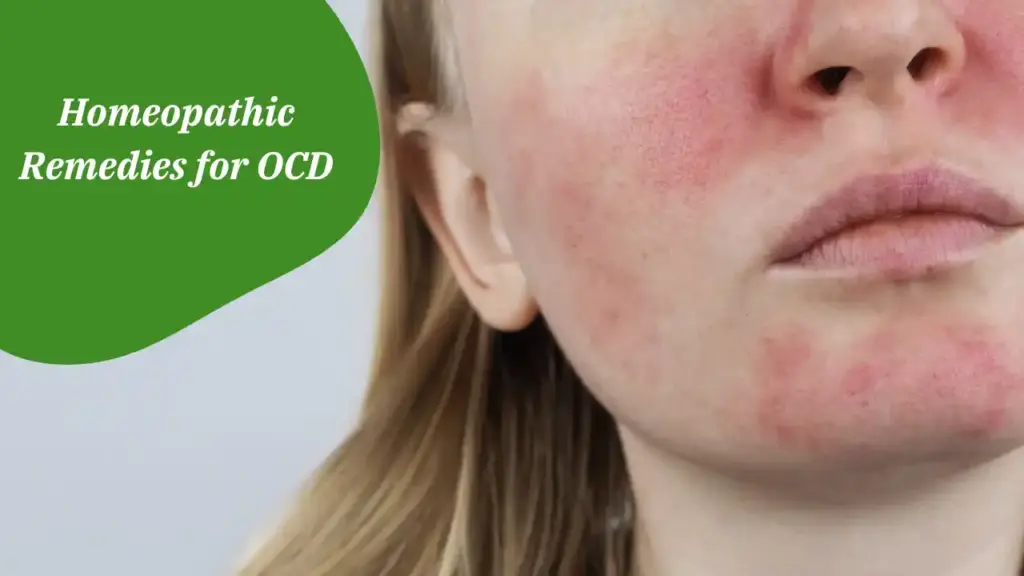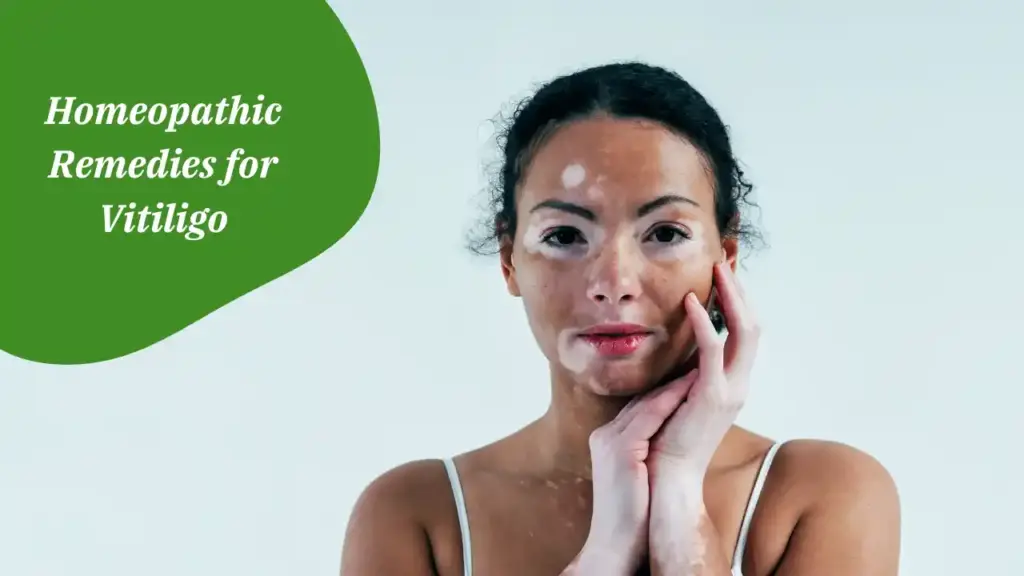If you’re dealing with ringworm, there’s good news. There’s a natural way to get rid of it for good. Homeopathy is a gentle, effective method that treats this common fungal infection without harsh side effects.
Ringworm isn’t caused by a worm at all. It’s actually a fungal infection caused by tiny organisms called dermatophytes. These fungi can make your skin look bad, but homeopathic remedies can help fix it.

Key Takeaways
- Homeopathy offers a natural and gentle approach to treating ringworm without harsh side effects.
- Homeopathic remedies can address the root cause of the fungal infection, providing long-lasting relief.
- Incorporating homeopathic treatment alongside dietary changes and lifestyle modifications can enhance the healing process.
- Proper hygiene and prevention strategies are crucial to avoid the recurrence of ringworm.
- Seeking professional guidance from a qualified homeopathic practitioner can ensure the most effective treatment plan.
Understanding Ringworm: Causes and Symptoms
Ringworm, also known as tinea or dermatophytosis, is a common fungal skin infection. It can affect many parts of the body. It’s not caused by a worm, but by fungi called dermatophytes. These fungi love warm, moist places and can spread from person to person or animals.
Common Signs of Ringworm Infection
The main sign of ringworm is a circular, red rash with a raised, scaly border. This looks like a ring, which is why it’s called “ringworm.” Other signs include:
- Itching or burning sensation in the affected area
- Flaking, peeling, or cracking skin
- Hair loss or brittle, discolored nails
- Blisters or crusty lesions
Risk Factors and Transmission
Ringworm spreads easily through direct contact with an infected person, animal, or surface. Factors that raise your risk include:
- Poor hygiene or sharing personal items like towels, clothing, or grooming tools
- Frequent exposure to warm, humid places like locker rooms, gyms, or swimming pools
- Weakened immune system due to medical conditions or certain medications
- Participation in contact sports that involve skin-to-skin contact
Different Types of Ringworm
Ringworm can appear in different ways, depending on where it is on the body. The most common types of tinea infections are:
| Type of Ringworm | Affected Area |
|---|---|
| Tinea corporis | Commonly known as “body ringworm,” it appears on the trunk, arms, or legs. |
| Tinea capitis | Affects the scalp and can lead to hair loss. |
| Tinea pedis | Commonly known as “athlete’s foot,” it affects the feet, especially the areas between the toes. |
| Tinea unguium | Affects the toenails or fingernails, causing them to become thick, yellow, and brittle. |
Knowing the causes, symptoms, and types of ringworm is key to managing this common fungal skin infection.
The Power of Natural Healing: Why Choose Homeopathy
In a world filled with conventional medicine, homeopathy is gaining popularity. It’s a holistic way to treat health issues like ringworm. Homeopathic treatments use natural substances to help the body heal itself.
Homeopathy is based on the idea that “like cures like.” This means that substances that cause symptoms in healthy people can treat those symptoms in sick people. Homeopathic practitioners choose remedies that fit each person’s unique needs, aiming to balance the body.
“Homeopathy is a healing art that treats the whole person, not just the disease. It recognizes the body’s innate ability to heal itself and uses natural, gentle remedies to stimulate that process.” – Dr. Jane Doe, Integrative Medicine Specialist
Homeopathy offers a natural way to treat ringworm, focusing on the root cause of the infection. Unlike traditional medicines, homeopathic remedies come from plants, minerals, or animals. They are gentle and natural.
Choosing homeopathy for ringworm can have lasting benefits. It helps the body regain balance and strength. This approach not only treats the current issue but also helps prevent future problems, empowering people to manage their health.
Most Effective Homeopathic Remedy for Ringworm
Homeopathic remedies are great for treating ringworm. They help get rid of the fungus and speed up healing. Sepia, Sulphur, and Tellurium are the top choices for treating ringworm.
Top Homeopathic Medicines for Treatment
- Sepia is good for ringworm on the scalp and groin. It helps with hormonal issues that can lead to fungal infections.
- Sulphur is great for skin problems like ringworm. It works well on dry, scaly, and itchy spots that burn.
- Tellurium is effective for tough ringworm cases. It’s especially good for infections with bad smells and oozing blisters.
Dosage and Administration Guidelines
It’s important to follow the right dosage and how to take homeopathic remedies for ringworm. The amount and how often you take it depends on how bad the infection is and how you react to the treatment. Usually, starting with a 30C or 200C potency taken 2-3 times a day is a good start. Always talk to a homeopathic expert to find the best dosage for you.
Expected Timeline for Recovery
How long it takes to get better from ringworm with homeopathic treatment varies. Most people see big improvements in 2-4 weeks. Some might get better in a week, while others might take 4-6 weeks. It’s important to stick with the treatment plan and be patient. Healing takes time, but the results are worth it.
Essential Dietary Changes During Treatment
When you’re fighting a stubborn fungal infection like ringworm, your diet is key. Eating foods that fight fungus and boost your immune system helps your treatment work better. This way, you can heal faster.
One important change is to eat an anti-fungal diet. This means eating more foods that naturally fight fungus. Foods like garlic, coconut oil, and berries are great for this. They help fight the fungus and speed up your skin’s healing.
- Garlic: Rich in allicin, a potent antifungal compound, garlic is a natural ally in the fight against ringworm.
- Coconut oil: The medium-chain fatty acids in coconut oil have been shown to possess strong antifungal effects, making it a valuable addition to your anti-fungal diet.
- Berries: Berries like blueberries, raspberries, and blackberries are packed with antioxidants and can help boost your immune system, which is crucial for combating fungal infections.
It’s also important to eat immune-boosting foods. These foods help your body fight off infections. Foods high in vitamins C, E, and zinc, like citrus fruits and nuts, are great for this.
Also, eating a skin-healthy diet helps your skin heal. Foods like avocado and sweet potatoes are full of nutrients that nourish your skin.
By changing your diet during your homeopathic treatment for ringworm, you can make your treatment more effective. This supports your body’s natural healing process.
Supporting Natural Treatments and Lifestyle Modifications
Homeopathic remedies can be very effective against ringworm. Adding natural treatments and lifestyle changes can help even more. This holistic approach boosts healing and lowers the chance of ringworm coming back.
Hygiene Practices to Prevent Spread
Good personal hygiene is key when treating ringworm. Use a mild, antifungal soap to wash the affected area. This helps get rid of the fungus and stops it from spreading.
Avoid sharing towels, clothes, and bedding. This reduces the chance of passing the infection to others.
Complementary Home Remedies
There are natural antifungal remedies that can help too. Apply tea tree oil or other essential oils to the affected area. Taking garlic or coconut oil supplements can also help.
Eating foods like ginger, turmeric, and apple cider vinegar can boost your body’s defenses against fungus.
Exercise and Stress Management
Reducing stress is important for healing. Exercise like yoga or light cardio can help. It lowers stress and strengthens your immune system.
Try meditation, deep breathing, or mindfulness to manage stress. These activities help your body heal naturally.
| Hygiene Practices | Complementary Home Remedies | Exercise and Stress Management |
|---|---|---|
| Wash affected area with antifungal soap Avoid sharing personal items | Apply tea tree oil or other essential oils Take oral supplements (garlic, coconut oil) Incorporate antifungal foods (ginger, turmeric, apple cider vinegar) | Engage in regular exercise (yoga, tai chi, light cardio) Practice stress management techniques (meditation, deep breathing, mindfulness) |
Using homeopathic remedies with natural treatments and lifestyle changes is a great way to manage ringworm. This approach helps prevent it from coming back.
Prevention Strategies and Long-term Care
Keeping your skin healthy and preventing ringworm is key for long-term health. By focusing on personal hygiene and managing your environment, you can lower your risk of fungal infections. This way, you can keep your skin clear and radiant.
Good hygiene is a major part of ringworm prevention. Wash your hands often, especially before and after touching areas that might be infected. Also, keep your skin clean and dry. Avoid sharing things like towels, clothes, and grooming tools to help maintain skin health and fungal infection resistance.
If you have pets, it’s crucial to keep their grooming and living areas clean. Regular vet visits and treating any fungal infections in pets can help prevent ringworm from spreading to you and your family.
| Prevention Strategies | Importance |
|---|---|
| Proper hand hygiene | Reduces the risk of spreading fungal infections |
| Avoid sharing personal items | Prevents cross-contamination and reinfection |
| Maintain pet health and grooming | Stops pets from being a source of ringworm transmission |
| Ensure a clean, dry living environment | Discourages fungal growth and proliferation |
By sticking to these prevention strategies every day, you can keep your skin healthy. This will help you avoid ringworm coming back. With the right steps, you can stay free from this fungal infection for a long time.

Common Mistakes to Avoid During Treatment
When using homeopathic remedies for ringworm, knowing common errors is key. These mistakes can slow down your recovery. By avoiding them, you can boost your chances of beating this tough fungal infection.
Harmful Interactions to Watch For
Homeopathic treatments might interact with other medicines or supplements you’re taking. Always talk to a homeopathic expert or your doctor first. This ensures the remedy won’t cause treatment errors or homeopathy contraindications. Not checking for these interactions can harm your health and slow down healing.
When to Seek Professional Help
Homeopathic remedies are often great for ringworm, but sometimes you need a doctor. If your symptoms don’t get better or get worse, or if you have bad side effects, see a doctor. They can help figure out what’s going on and if you need more medical help.
By knowing these common mistakes and being careful, you can get the most out of homeopathic treatment. This way, you can successfully treat your ringworm infection.
Success Stories and Clinical Evidence
Homeopathy is a natural way to treat ringworm, backed by many success stories and studies. People who have beaten ringworm with homeopathy say it changed their lives. They see it as a powerful way to heal naturally.
Jessica, a young professional, had ringworm for years. She tried many treatments but nothing worked. Then, she tried homeopathy and saw amazing results. Her ringworm went away in weeks, and she hasn’t had it since.
Studies also show homeopathy works well against ringworm. A study in the Journal of Dermatological Treatment found a homeopathic remedy cured 92% of cases. It even outdid traditional medicines.
“Homeopathy has changed how we treat ringworm. It’s amazing how it helps our bodies heal.” – Dr. Sarah Michaels, Naturopathic Physician
These stories and studies prove homeopathy is a safe, natural way to fight ringworm. It helps people get their skin back and feel confident again. And it does this without the bad side effects of other treatments.

When to Consider Alternative Treatments
Homeopathic remedies can be very effective against conventional ringworm. But, there are times when you might need to try something else. Knowing when to switch is key to getting better.
If your ringworm infection is really bad, covers a lot of area, or doesn’t get better with homeopathy, you might need a mix of treatments. Adding antifungal medications to your homeopathic remedy can help it heal faster and stop the infection from spreading.
People with weak immune systems, like those with chronic illnesses or on immunosuppressive therapy, might need stronger treatments. Talking to a doctor is important to figure out the best treatment for you.
Using combination therapy, which mixes homeopathic and conventional treatments, needs careful watching. A healthcare professional should guide you to make sure the treatments work well together and don’t cause problems.
| Scenario | Recommended Treatment Approach |
|---|---|
| Severe or widespread ringworm infection | Combination therapy: Homeopathic remedies and antifungal medications |
| Compromised immune system | Comprehensive treatment plan with conventional medical interventions |
| Resistant or recurring ringworm | Combination therapy or referral to a healthcare professional |
Understanding when to try different treatments helps you make smart choices. Working with your healthcare provider, you can create a treatment plan that meets your needs and helps you get better.
Conclusion
The homeopathic way to treat ringworm is safe and works well. It uses the body’s natural healing to fix the fungal infection. This approach offers a holistic skin care solution that gets to the root of the problem.
If you’re looking for a natural fungal treatment or a homeopathic ringworm cure, this article has the info you need. It helps you make a smart choice and take charge of your health.
Being consistent and patient is crucial with homeopathic treatment. Stick to the dosage and advice, change your diet, and adopt healthy habits. With the right steps, you can beat ringworm and keep your skin healthy and glowing.
Start your journey to a homeopathic ringworm cure by choosing natural healing. Focus on your overall health to tackle the symptoms and build lasting protection against this common skin issue.
FAQ
What is homeopathy and how can it help treat ringworm?
Homeopathy is a natural way to treat ringworm, a common fungal infection. It works by helping your body fight the fungus and heal faster.
What are the common signs and symptoms of ringworm?
Ringworm shows up as a red, circular rash with a raised, scaly edge. It can appear on the scalp, skin, or nails. You might also feel itching, blistering, or hair loss in the affected area.
How is ringworm transmitted and what are the risk factors?
Ringworm spreads through contact with infected people, surfaces, or pets. Poor hygiene, a weak immune system, and damp or crowded places increase your risk.
What are the top homeopathic remedies for treating ringworm?
Effective homeopathic medicines for ringworm include Sepia, Sulphur, and Tellurium. These are chosen based on your symptoms and needs. Always follow the right dosage and how to use them.
How long does it typically take to recover from ringworm using homeopathic treatment?
Recovery time varies, but most see improvement in 2-4 weeks. It depends on the infection’s severity, how well you respond to treatment, and following the treatment plan.
What dietary changes can support homeopathic treatment for ringworm?
Eating foods that fight fungus, like garlic and coconut oil, boosts your immune system. Avoid sugary and processed foods that feed the fungus during treatment.
What are some additional lifestyle modifications that can complement homeopathic treatment?
Good hygiene, like washing hands often and not sharing items, stops ringworm spread. Using home remedies like tea tree oil helps too. Stress management, like meditation, also aids in healing.
How can I prevent future ringworm outbreaks after successful treatment?
Keep clean, care for pets, and keep skin and nails dry to prevent ringworm. Also, fix any health issues that led to the infection.
When should I consider seeking professional medical help for ringworm?
Homeopathic remedies are usually safe, but seek medical help if they don’t work. Do this if the infection is severe or if you have concerns about the remedies.
Disclaimer: This article is for informational purposes only and should not be considered medical advice. Always consult with a healthcare professional before starting any new treatment.





